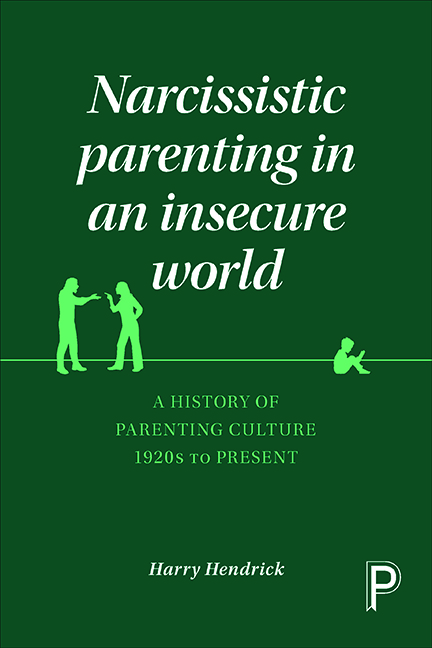Book contents
- Frontmatter
- Dedication
- Contents
- About the author
- Acknowledgements
- Introduction
- Part One The origins of social democracy’s family ideal: 1920s–1940s
- Part Two Characteristics of the ‘Golden Age’: 1940s–early 1970s
- Part Three Influences and examples from the USA
- Part Four Parental narcissism in neoliberal times: 1970s to the present
- Part Five Therapeutic reflections
- Index
Part Four - Parental narcissism in neoliberal times: 1970s to the present
Published online by Cambridge University Press: 05 April 2022
- Frontmatter
- Dedication
- Contents
- About the author
- Acknowledgements
- Introduction
- Part One The origins of social democracy’s family ideal: 1920s–1940s
- Part Two Characteristics of the ‘Golden Age’: 1940s–early 1970s
- Part Three Influences and examples from the USA
- Part Four Parental narcissism in neoliberal times: 1970s to the present
- Part Five Therapeutic reflections
- Index
Summary
Introduction
By the early 1970s the support of both the professional middle and respectable working classes for progressive liberalism, which had been such a prominent and critical feature of the post-war social-democratic settlement, began to slip away to the point where these constituencies increasingly gave their electoral approval to the New Right with its Thatcherite economics and reactionary socio-political charter. The broad chronicle of what happened is well known. My focus, however, is on how the changes affected the conceptual disposition of parenting as culture, and the effect on parent–child relations. Since I regard child-rearing as being in part a political engagement, it will be helpful to see its post-1960s development within the context of the variety of realignments that have characterised British society. We may begin by noting that the Parliamentary move to the Right was not to the organic ‘One Nation’ ideal of older conservatives, with its commitment to paternalism and pragmatism. Instead it was to a determined neoliberalism that was not merely economic and corporate, but infected every tissue of the body politic, certainly as it evolved under Thatcherism, New Labour, and thereafter. In seeking to remoralise Britain, the New Right did so in its own image – that is, in terms of welfare, work, crime and punishment, and the promotion of choice, each expressed in terms of contractual obligations between the parties involved. But there was never much of a concerted effort to interfere with personal freedoms in relation to cohabitation, gender, sexuality, consumerism and what we think of as lifestyle. Under neoliberal regimes, these freedoms, however socially and emotionally harmful the consequences of certain features may be, simply coalesce alongside ruthless economic exploitation of labour, the marketisation of values, selective welfare services, and the privileging of the rich. Some groups, however, found that their lives were restricted – the socially excluded: the poor, the young and the dysfunctional – those who were largely outside the market and unable to compete in the global economy. If we are to understand why or how the ideal of social-democratic child rearing gave way to narcissistic parenting, we need to keep these markers of social change in mind.
- Type
- Chapter
- Information
- Narcissistic Parenting in an Insecure WorldA History of Parenting Culture 1920s to Present, pp. 199 - 200Publisher: Bristol University PressPrint publication year: 2016



